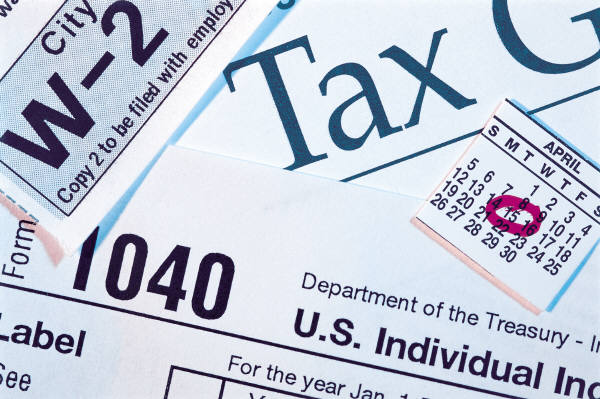 With a record $1.5 Billion prize on the horizon for tomorrow’s Powerball draw, we’re naturally cashing in on the action with this timely article about forming a Massachusetts lottery trust. A lottery trust is a simple instrument, really, designed simply to preserve anonymity for the lottery winner. And for anyone who’d like to avoid hearing an endless parade of sad stories from new and old acquaintances and friends, the lotto-trust (not a legal term) is an absolute necessity.
With a record $1.5 Billion prize on the horizon for tomorrow’s Powerball draw, we’re naturally cashing in on the action with this timely article about forming a Massachusetts lottery trust. A lottery trust is a simple instrument, really, designed simply to preserve anonymity for the lottery winner. And for anyone who’d like to avoid hearing an endless parade of sad stories from new and old acquaintances and friends, the lotto-trust (not a legal term) is an absolute necessity.
How Does it Work?
Like any trust, this year’s lottery trust must have three elements: A trustee, the corpus or property of the trust, and a beneficiary. The trustee (or trustees) holds legal title (i.e. official control) over the corpus. The beneficiary holds equitable title (i.e. ability to enjoy) the corpus. In most Massachusetts lottery trusts, we’ve seen professional attorneys act as Trustees. Hiring an unaffiliated attorney for this purpose ensures not only that outsiders would not be able to identify the winner, but also that the winnings are held by a professional with fiduciary experience (and preferably protected by a professional liability insurance policy).
The trust can be written so that the beneficiary will be paid as much as he or she requests at any given time, giving the lottery winner actual control over the whole amount. In fact, if drafted correctly the beneficiary could potentially liquidate the trust as soon as the money is transferred into the trust. The key, of course, is to preserve anonymity upon receiving that original award. As an extra step in this process, it is recommended to also obtain a separate tax Id number from the IRS, rather than use the winner’s social security number.
Having put even the most simple trust in place, the winner can avoid any media attention, harassing phone calls or even hard feelings from friends and coworkers. The attorney-trustee simply visits the office in Braintree, gets his or her picture taken and drives off with a big check to deliver to the beneficiary.
Additional Benefits of a Trust for Lottery Winnings
 Apart from anonymity, a trust can provide additional support to an individual (or a family) that may want to protect the money from their own bad habits. Drafting the trust in such a way that restricts the trustee from accessing principal, and paying beneficiaries only the trust income, is actually a common practice in traditional trusts. To avoid unforeseen circumstances, the trustee could be empowered to distribute principal at his discretion “for the health, well being and maintenance” of the beneficiaries.
Apart from anonymity, a trust can provide additional support to an individual (or a family) that may want to protect the money from their own bad habits. Drafting the trust in such a way that restricts the trustee from accessing principal, and paying beneficiaries only the trust income, is actually a common practice in traditional trusts. To avoid unforeseen circumstances, the trustee could be empowered to distribute principal at his discretion “for the health, well being and maintenance” of the beneficiaries.
While reducing taxes might be a goal that most lottery winners desire, there really isn’t much a trust can do in this respect. For any prize over $5,000, the Massachusetts lottery commission must inform the IRS of the award. Further, it will ensure that the form W-2G, complete with a social security number and 25% of the prize, is sent to the agency. Should the trust begin to generate income from year to year, it is even possible that the trust would be a disadvantage. One exception to this would be for purposes of estate taxes, but that is the subject of an entirely different article. And in any case, this is actually a conversation that necessitates CPA attention and input for each particular individual.
Accounting for Multiple Winners of a Lottery Ticket
It is often the case that a Powerball or other lottery ticket holder has pooled resources and formed an agreement with a bunch of friends or co-workers. While we hope this agreement was in writing to begin with, the trust can be an extremely valuable tool to ensure that everyone of the “winners” is treated equally by an independent and disinterested third party trustee. In this way, since no one of the actual partners holds the keys to the prize proceeds, an extra layer of protection is achieved.
What Are the Drawbacks of a Mass Lotto Trust?
While there really isn’t any downside for the lottery winner, there are general concerns that many in government and the public have with this practice. One of the main requirements for a successful lottery is that it be transparent, so that the game players are confident the process is fair. The public needs to know that prizes are not being awarded to government insiders, or worse still, employees of the lottery commission itself.
Why Don’t All Winners Form One?
While there is no clear answer to this question, one could speculate that the reason is the same as why so many lottery winners go bankrupt; that they are generally unprepared. Like any financially successful individual, the most common trait for any lottery winner that preserved his or her winnings has a lot to do with the formation and adherence to a solid plan. A 2001 study cited in US News and World Report found that on average, lottery winners kept only $0.16 of every dollar won, and that bankruptcies for many of these folks is quite common.
All of those trends and statistics aside, the use of lottery trusts in Massachusetts is reportedly on the rise. The Massachusetts Lottery spokesman, Christian Teja, was quoted as saying that “Typically, people are choosing not to have a spotlight on them and trying to maintain a level of privacy, and it is completely within the legal boundaries. All the better for our clients.
To learn more about lottery trusts, or what kind of safeguards can be put in place within one, please don’t hesitate to call our office.




